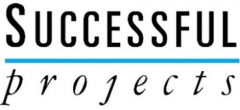Trends
It’s exciting to think about what global trends and technological changes will impact our profession, and the potential for advancements and improvements in our ability to complete SUCCESSFUL PROJECTS.
As I reflect on this topic, I thought I would use my next few blog posts to highlight six trends that I find relevant and exciting. Project management is positioned to be a perfect vehicle to turn an organizations’ strategy into tangible results. And, truly effective organizations will make sure their project and program managers have the right skills to drive and navigate change in a fast-paced environment. In the [PMI] Pulse of the Profession 2020 (2020), it reinforces that leaders must be sure to take a strategic approach to incorporating newer approaches, and they need to prioritize developing a culture that values project management by supporting pursuit of certification and nurturing leadership and people skills in order to meet the project demands of tomorrow.
In this first post let’s explore the first two out of the six trends, employment and learning trends.
Employment Trends
Project Management still seems to be a growing, attractive skillset that employers desire. According to PMI’s (2017). Project Management Job Growth and Talent Gap 2017–2027, “by 2027, employers will need 87.7 million individuals working in project management-oriented roles”, This demonstrates the increasing need for skilled and experienced project and program managers. In PMIs Pulse of the Profession 2020 (2020), executive leaders identified organizational agility (35%), choosing the right technology (32%) and securing relevant skills (31%) as factors most important to success. To be prepared, project professionals need to be able to embrace change, learn more about emerging technologies including Artificial Intelligence (AI), increase their data fluency, and equally important, increase their leadership and other soft skills. AI may be able to take over a lot of administrative and reporting aspects of a project managers job but the value of leadership and other soft skills will never go away.
Another employment trend is that companies are increasingly incorporating hybrid methodologies or methodology selection based on fit for purpose. For example, a traditional waterfall methodology may be appropriate for one type of project whereas an adaptive framework, or a combination of approaches, would be more appropriate in another. Therefore, there is a need for hybrid project managers, ones who are not solely experts in one methodology but are well-versed in several and are competent in determining the best method for the project at hand.
Learning in New Ways
I often get asked by students if holding a certification will help them get hired or promoted. I thought it was an interesting reinforcement from the Pulse of the Profession, to see that “more than half (51 percent) of organizations require project professionals to hold some type of certification for their role.” One added value of certification is that they typically require ongoing professional development, allowing project managers to evolve, enhance, and grow a variety of skills, including technical, leadership, and digital skills.
Especially in 2023, how we learn seems to be evolving dramatically. Learning platforms range from social media to web-based tools, to learning management systems, all with a shift toward on-demand content. Innovations in learning will continue to make it possible to learn anything, anytime, and anywhere. And the skills we learn will certainly need to include soft skills. Since a large part of project management involves interactions with other people, the ability to communicate effectively, resolve conflict, deal with ambiguity, and act with diplomacy, are critical skills to master. As more projects are globally implemented and have to bridge language and cultural barriers, soft skills will increasingly be in high demand.
There are so many exciting and often times mind-blowing advancements occurring in the world. As project managers, it is important to keep an eye on the future and try to understand how these changes may introduce negative risks or opportunity into your projects and your career. I’d love to hear your feedback on what trends in employment and learning will impact project managers and what we should be doing to prepare and position ourselves and our projects for SUCCESS. In my next post we will explore two more trends, including emerging tools/artificial intelligence and the changing face of teams.



